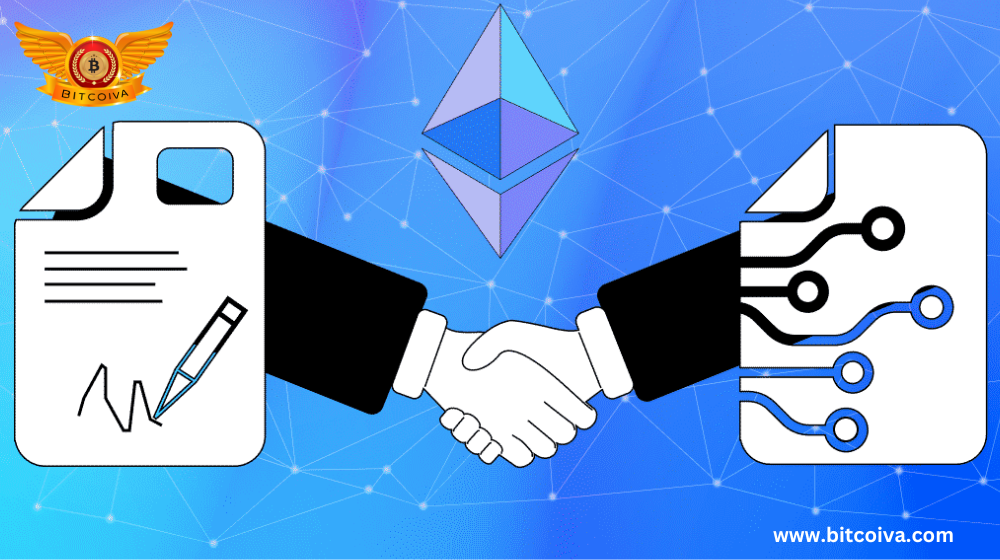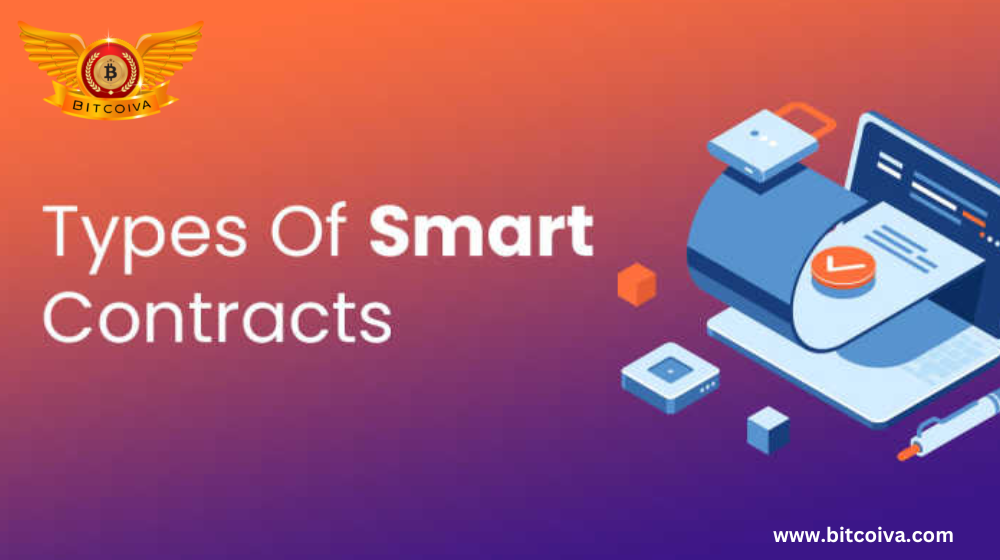Smart contracts are digital transaction protocols that, if certain conditions are met by all parties, verify, control, and self-execute an agreement embedded in computerized codes on a blockchain. These contracts take place between anonymous parties. And automatically enforce without the assistance of any third party, in contrast to traditional (physical) ones.
Signatories (parties), the thing covered by the contract, and the terms of the contract are its three main parts. For the transaction to be successful, all parties involved must adhere to the terms of the agreement (a set of guidelines and penalties). Executing agreements through digital contracts is thought to be secure, cost-effective, and eliminates the need for a middleman. Furthermore, the decentralized nature crypto exchange platform of the blockchain network guarantees the transparency, traceability, and irreversibility of all transactions.
Key Points Of Smart Contracts
The term “smart contracts” refers to digital transaction protocols that use the blockchain to automatically enforce an agreement without the need for a third party. Computer codes used to create the agreement’s terms contain rules and sanctions that both parties must concur upon before signing.
The parties involved can audit and validate the data as needed, thanks to the transactions’ immutability and transparency.
These contracts divide into three categories: application logic contracts, smart legal contracts, and decentralized autonomous organizations.
Despite the irreversibility of smart contracts, they can still update indirectly if necessary by adding new codes or clauses to the terms of the contract.
Meaning of Smart Contracts
Two or more parties, including people, organizations, and governments, involve in a traditional (physical) contract. They concur with the terms of the contract in order to carry out transactions through a third party. This third party could be a government agency, a lawyer, or anything else. It is there to handle the proceedings and contract execution. This raises the cost of auditing and enforcing laws, as well as the likelihood of fraud-related loss.
Nick Szabo, an American computer scientist, and cryptographer, first used the term “smart contracts” in 1994. While attempting to carry out the terms of a contract using distributed ledger technology and computerized transaction protocols. Blockchain-based computer programs called smart or self-executing contracts enable transactions when parties meet a predetermined set of requirements. Additionally, there is no requirement that the parties rely on a third party to validate and execute the agreement.
Functioning of Smart Contracts
When buying or selling an asset, two interested parties (a buyer and a seller) enter.
The terms or clauses of their agreement are written in codes on a decentralized blockchain network and entered into a smart contract between the two parties. This is entirely digital and self-executing.
These rules outline the conditions that must be met by both parties in order for the contract to be automatically enforceable. When all parties agree to these conditions, the transaction completes.
The smart contracts platform provides top-notch security and total transparency in coin exchange India. Additionally, it prevents data manipulation and enables the two parties to follow the transaction. However, the identities of the parties involved are kept a secret.

Examples
Examples of smart contracts are prevalent in a variety of sectors, including those dealing with intellectual property, banking, insurance, legal services, e-government, crowdfunding, etc. Let’s think about the following examples to help us better understand the concept:
1. An idea for a business project from the ABC team, propose for funding by a group of investors. Both parties enter into a smart contract that codifies the terms and outlines a set of guidelines and sanctions surrounding it. The blockchain will transfer the funds to ABC if the project idea appears to be legitimate according to the codes. On the other hand, the blockchain will return the funds to the group if the project idea doesn’t seem satisfactory in light of the contract terms. In this illustration, the contract only self-executes the contract if the pertinent event triggers after storing and validating transaction information.
2. Another real-world example is when a buyer agrees to pay a seller for delivering a certain quantity of goods on a certain day. The terms of the contract specify the payment amount and the deadline for receiving the goods. If the party doesn’t follow through, the transaction will be held in the blockchain.
3. Ethereum’s wallets, the popular blockchain-based crypto trading apps in India that require an Ethereum account from the user. They are able to conduct financial transactions without involving a bank or another third party. In order to provide high-end protection to wallet users, open-source blockchain Ontology recently announced a partnership with blockchain distribution network bloXroute Labs, Inc. Ethereum smart contracts will be more secure and safe for users thanks to their integrated design with the Ethereum Virtual Machine.
Financial Smart Contracts
These contracts in finance can aid in streamlining and accelerating various financial services. Insurance companies use this type to establish official agreements and resolve claims. Likewise, stock markets can specify securities trading guidelines in these agreements to issue bonds for trading that complies with regulations. Similarly, banks can use these contracts to handle syndicated loans faster while lowering operational risks.
Smart Contracts: Are They Reversible?
The way that smart or blockchain contracts ensure compliance between the two parties makes them special. One of a self-executing contract’s most remarkable characteristics is immutability. It means that once codes, rules, and even transactions have programmed into the blockchain, they cannot be reversed, altered, or tampered with.
These agreements execute automatically in accordance with the established codes (contract terms) and rules because they are computer programs. However, few indirect methods that might be helpful if these codes and conditions still need to update:
Make an intermediary contract that includes information about the transaction, such as the contract’s address. As a result, any transaction initiated through the intermediary contract will switch to the active one.
Create a new contract version in programming and import all the transaction data, terms, and codes from the current contract into it.
To recall the conditions, guidelines, and transactional information of the active contract, store the logic code of the existing contract in a library.
Smart Contract Types
Depending on their uses, self-executing contracts fall into one of three categories:
Smart Legal Contracts
These agreements are enforceable in court and bind the parties to uphold their end of the bargain. If they don’t, they might face harsh legal consequences.
Decentralized Autonomous organizations
These are blockchain communities that are governed by set rules that are written into blockchain contracts and other governance tools. Therefore, any action taken by community members replace by a code that applies itself.
Application Logic Contracts
The application-based code in these contracts keeps them in sync with other blockchain contracts. It enables the communication between various devices, such as when blockchain technology and the Internet of Things combine.
Visit us on : www.bitcoiva.com


Comments are closed.